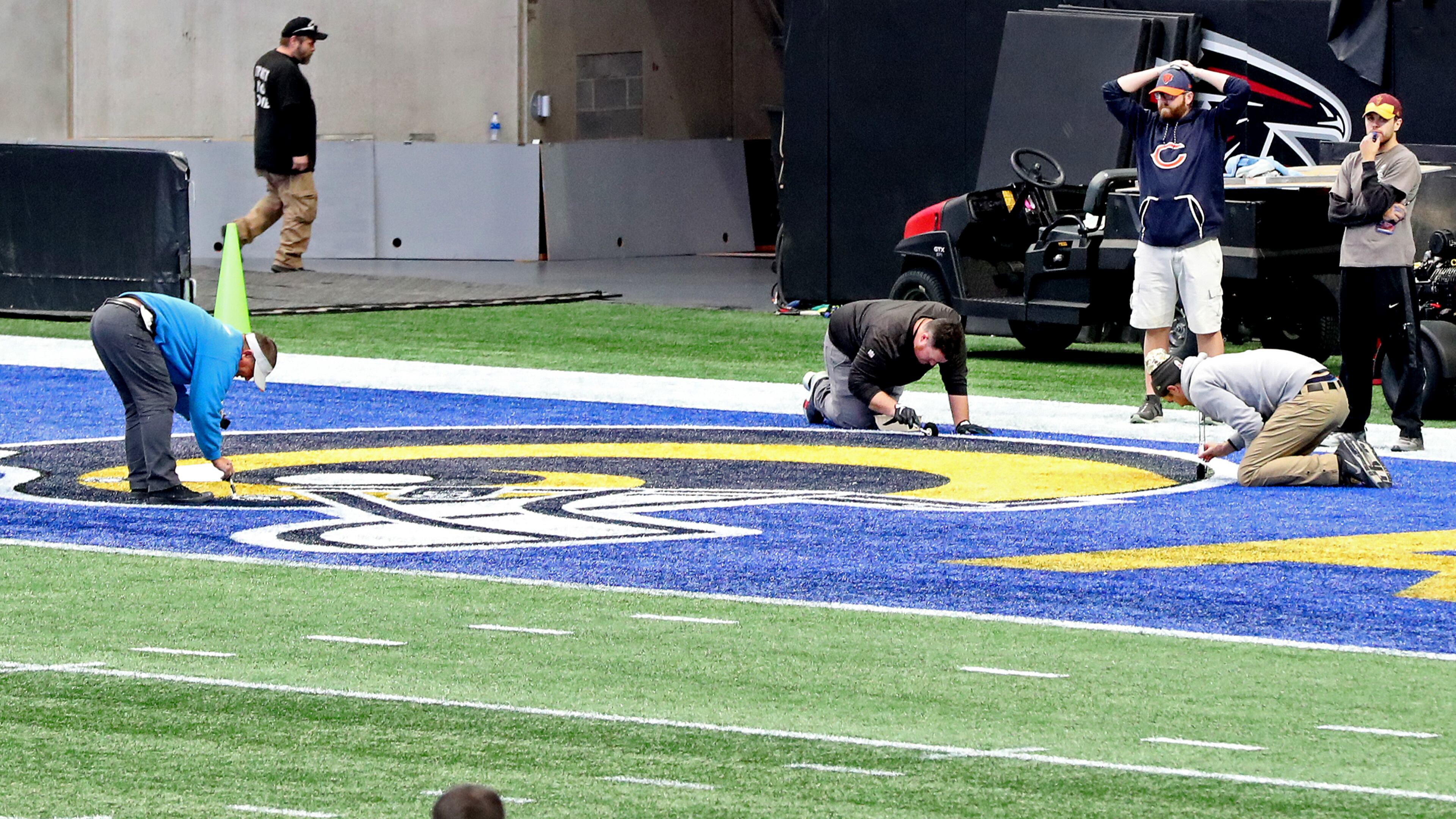Mercedes-Benz Stadium turf will be replaced

The artificial turf on which Super Bowl LIII was played will be replaced before next football season, Mercedes-Benz Stadium officials said Thursday.
The plan is to use a “very similar but newer version” of turf from the same company, FieldTurf, that installed the current playing surface before the building opened in 2017, stadium general manager Scott Jenkins said.
The work, which will take about a week, will be scheduled before the start of the Falcons season and during the Atlanta United season, Jenkins said.
“We’re looking for an opening in the schedule,” he said.
Jenkins said the turf likely will be replaced every two years, in part for aesthetic reasons because of wear from the field being constantly repainted and rebranded for various events.
The turf replacement, which will cost about $700,000, is the most expensive item on a lengthy list of capital improvements proposed for the stadium this year by the Falcons organization, which operates the facility. The list, totaling $1.97 million, was presented Thursday at a meeting of the Georgia World Congress Center Authority, a state board that has an oversight role over the stadium.
Among other items on the list: self-serve coolers for the upper deck ($22,700), five additional automated turnstiles ($69,829), video equipment ($150,000), restoring/updating finishes because of wear and tear ($250,000) and a new cooling tower water-treatment system ($364,360).
Capital improvements are funded in part by a portion of the Atlanta hotel-motel tax dedicated to the stadium. If there aren’t sufficient funds from the tax to cover needed improvements, the Falcons organization is responsible for the rest.
The GWCCA has 25 business days to provide feedback about this year’s proposed expenditures.
Stadium officials also presented the board with a projection of capital-improvement costs over the next five years, showing a dramatic rise in 2022 (to $10.4 million) and 2023 ($18.9 million). Technology and video upgrades that will be needed around that time, as well as suite and club “refinishings,” will account for the increased costs in those years, the board was told.
As the GWCCA meeting was held, work continued to return the stadium to regular operations post-Super Bowl.
“It’s starting to get back to normal,” Jenkins said. “I find it amazing you look around the city now and you can barely tell we hosted a Super Bowl only a few days ago. It has been a beehive of activity, for sure, and we’re going right into private events and the dirt shows (Monster Jam and Supercross) and then we start soccer. So the building is going to start humming again.”



